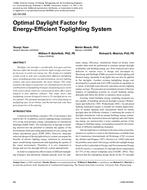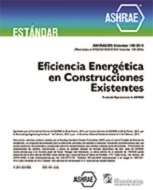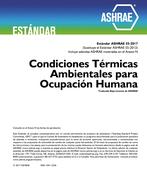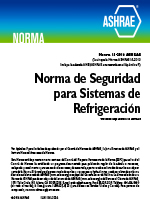Description
Skylights can introduce considerable heat gain and lossthat may offset the benefits of electric light savings and causean increase in yearly net energy use. The design of a toplightsystem needs to take into consideration different toplightingtypes, including aperture size and orientation, electric lightingcontrol, and, most importantly, the local climate. This studyexamines the impacts of aperture size (daylight factor) for fourcombinations of toplighting strategies and glazing types on thetotal yearly energy loads for a prototypical open office spacesituated in four different climates. This study shows thattoplighting systems designed to meet a 2% daylight factor arenot optimal. The optimum daylight factor varies depending ontoplighting type, local climate, and the thermal and solar heatgain properties of the glazing.
Citation: ASHRAE Trans., vol. 112, pt. 2, paper no. QC-06-058, p. 622-632
Product Details
- Published:
- 2006
- Number of Pages:
- 11
- File Size:
- 1 file , 880 KB
- Product Code(s):
- D-28781




